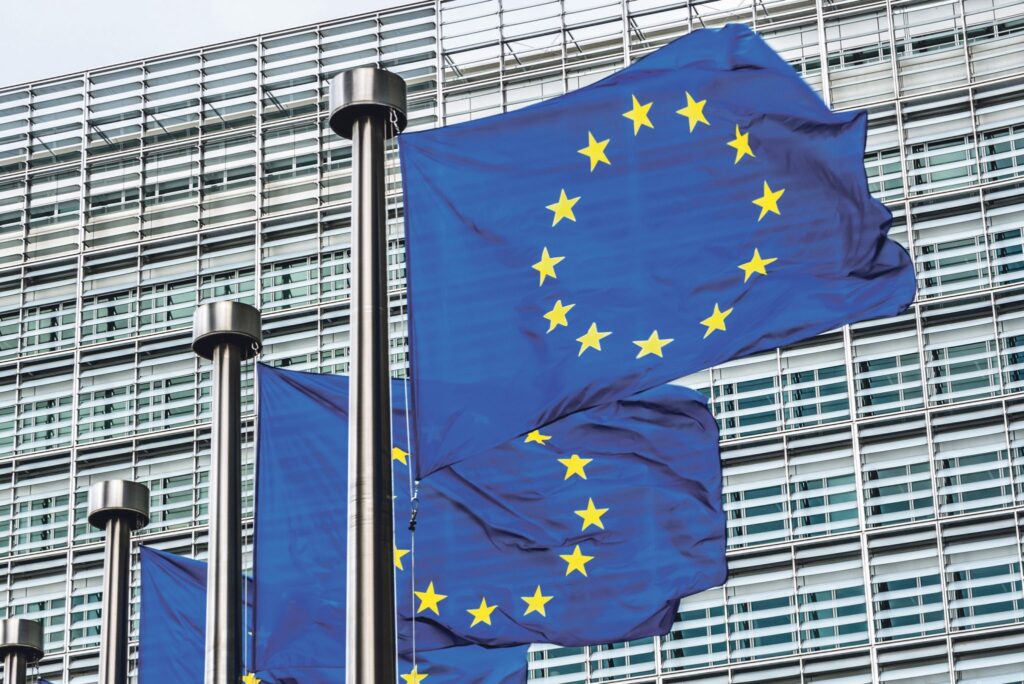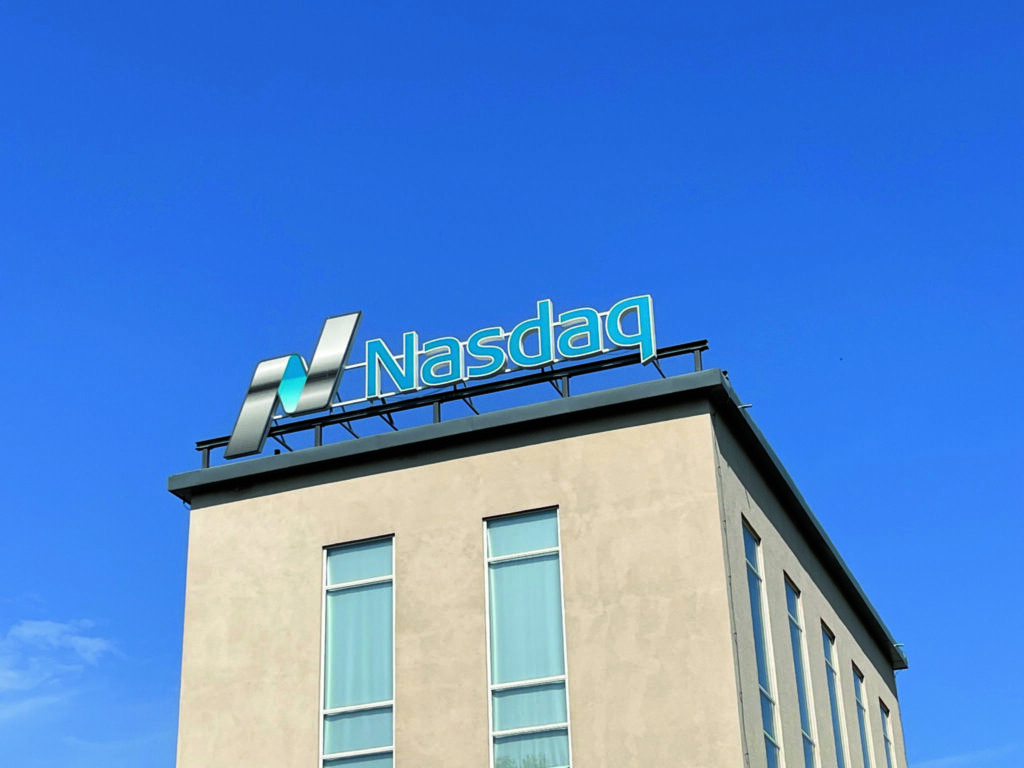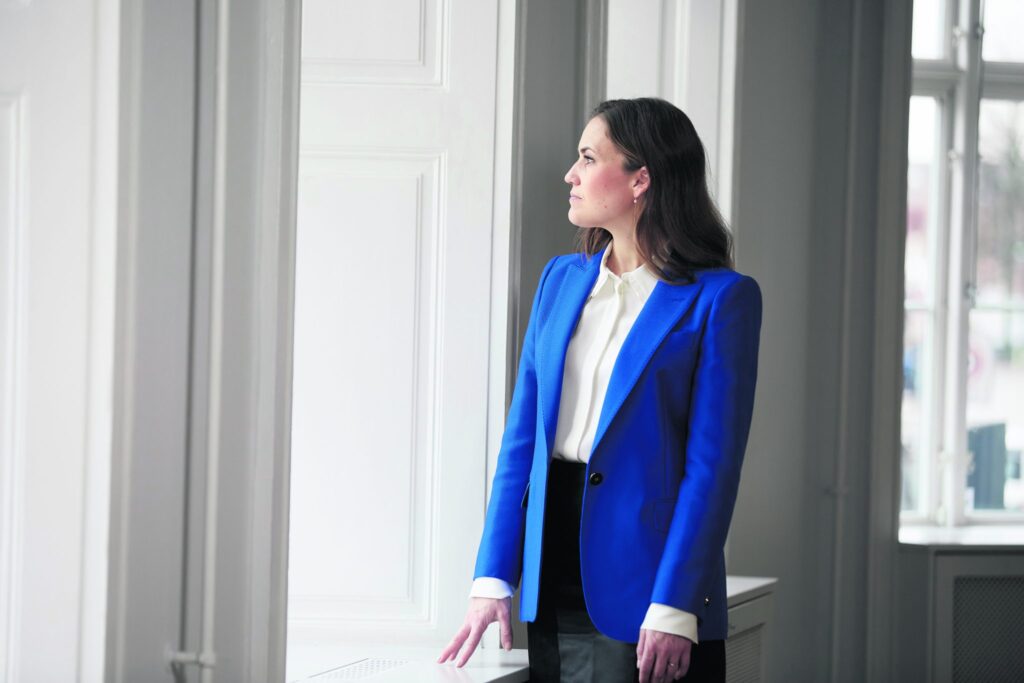Executive

The ultimate luxury
Tine Østergård
As he sits there impeccably dressed in a diplomatic blue suit, discreet blue-striped tie and a neat white cloth in his left breast pocket, Lucas Johansson gives the impression of knowing what he’s talking about. We are sitting at d’Angleterre – Denmark’s only hotel in the five-star superior category – in a newly renovated suite on the 3rd floor with a view of Kongens Nytorv, in soft, purple chairs at a round marble table, with sparkling water from the minibar standing in front of us. Kongens Nytorv at the very heart of the city is busy, but the noise does not reach the hotel. Lucas Johansson arrived as the CEO at d’Angleterre in 2013, when the hotel opened its doors after the largest hotel renovation in Danish history, which kept the hotel closed for more than two years.
“My ambition was to make d’Angleterre the leading hotel in Northern Europe. I wanted to raise the hotel’s luxury level to the world’s elite and show that the ultimate luxury could work for a hotel in Copenhagen, even if there were several skeptical voices who doubted my plan,” says Lucas Johansson.
Nordic luxury
The words that come out of his mouth are English with French undertones. Lucas Johansson was born in Brazil to Swedish parents, graduated from the hotel school in Switzerland and has been shaped by an international career at luxury hotels such as the Hôtel de Crillon in Paris and The Savoy in London. Before joining d’Angleterre, he was director of the five-star hotel Beau-Rivage Palace in Switzerland. As newly appointed director of d’Angleterre, he therefore had a clear understanding of the concept of ultimate luxury.
“It’s about how you look, how you welcome guests, how you speak to them. It is very formal. At my former hotel in Switzerland, there was a rule that the chefs were not allowed to have beards, and in general tattoos were not well regarded at international luxury hotels.”
Lucas Johansson brought several of the principles to d’Angleterre and introduced a code of conduct for the employees as hosts. Among other things, in relation to how they should stand, how they should walk, how they should open a door, how they should speak to the guests and to what extent they should interact with the guests. But he soon learned that his luxury standards weren’t 100 % compatible with the Danish culture. The adaptation had to go both ways.
“I quickly realized that traditional luxury would not work here, and should not work here. In Denmark, luxury is a less rigid concept, and there is a need to be less formalistic. The guests don’t care if the chefs are freshly shaved or if they have tattoos. The guests appreciate that the staff meet them with a natural and sincere friendliness and forthcomingness.”
For Lucas Johansson, the biggest challenge was therefore to combine classic luxury with a Nordic approach.
“When I came to d’Angleterre, the hotel had a very strong brand, but it did not live up to the greatness of the past. We needed to changed that. In the first years, all hosts and hostesses – as we call them – had to learn not to call the guests by their first names or give them a slap on the back. But they had to maintain their sincerity and their intention. They had to hold on to the personal approach to the guests, because in the end it that’s what the guests will remember,” he says and continues:
“You can build a beautiful hotel with beautiful things, but that is not enough. At the end of the day, it is the personal interaction that makes all the difference. It’s the one you remember and it’s the one that keeps you coming back. You will not come back if the staff have been rude to you, no matter how beautiful the hotel is.”
Lucas Johansson and his team introduced d’Anglecademy, which is a detailed program that all new employees must go through. The program provides an introduction to how employees should act towards guests, and an education in d’Angleterre’s 267-year history, so that employees can pass it on to guests.
“It is important that we have a common culture and a common way of doing things. It makes a huge difference how you open the door for the guest – do you go first or do you let the guest in first? Correspondingly, you as an employee must be able to read whether the guest is open for interaction or prefers not to be approached.”
A long-term plan
Lucas Johansson’s words are calm and considered. So is his body language. He does not look like he is stressed by the ongoing energy crisis, rising inflation or general uncertainty in the world.
“I have been in the hotel industry for over 30 years, and this is not the first time we have experienced a crisis. We have experienced 9/11, which created fear of traveling the world; the financial crisis, which created economic uncertainty; the ash cloud, which cancelled thousands of flights; and Covid, which combined the challenges all of those economic crises into one massive uncertainty and extended it over a much longer period. Covid has been the worst that we have experienced so far, and when you have been through it, you feel well prepared for most economic situations. The energy crisis is no different from anything we have seen before.”
When Covid shut down large parts of the world, Lucas Johansson wanted to keep d’Angleterre open. He felt a sort of obligation that the hotel should stay accessible to the guests. So, for two long Covid years, the hotel’s doors were open – with its suites, corridors and foyer all beautifully decorated with large flower decorations — but the hotel was only periodically allowed to function normally.
“How could I know that it was the right decision to stay open, even if it was periodically empty of people? Of course, I couldn’t, but I had a strong feeling of wanting to be present and close to our guests. Now we know it was the right strategy. It has created an advantage in the long run and a grew a completely new market, as we have stayed open and answered the phone when the guests and travel agencies called,” says Lucas Johansson.
In the aftermath of the Covid crisis, more Danes have developed a taste for a weekend stay at d’Angleterre rather than traveling abroad. So, although international travelers have gradually returned over the past year, many of them have been replaced by Danish guests. In the future, Lucas Johansson faces new difficult decisions in relation to how d’Angleterre will deal with the energy crisis. However, he is not nervous about making the wrong choices. His plan is always to think long-term and focus on growth and development.
“We improved energy efficiency during the renovation, so there is only so much we can do to save energy. That is why we focus on the positive – that the guests are here and that we can give them a good experience. If guests experience true luxury, even if there is an energy crisis, they are more likely to return. We will of course investigate how we can save even more energy and how we can minimize our impact on the environment and focus on sustainability, but our main focus is to give the guests a stay to remember.”
Lucas Johansson’s vision for the future of luxury hospitality inspired him to co-found Independent Hospitality Associates, a hotel management company that guides independent luxury hotel to achieve the perfect balance of high-quality products, accurate storytelling, intuitive personalized service and profitability.
Leadership in times of crisis
For Lucas Johansson, transparency is a keyword when it comes to management in times of crisis.
“Our employees read news like any other and feel the energy crisis themselves; so, if we as management do not communicate clearly, the employees can quickly invent their own reality. It is completely natural. That is why we make a point of honestly communicating exactly where we stand.”
Good and transparent management is important at a time when there is a great shortage of labor in the hotel industry. During the Covid crisis, many employees left the industry; and d’Angleterre, like many other hotels, is experiencing a staff recruitment challenge.
“Everyone says: Where have the employees gone? The answer is probably that many have left the industry in favor of jobs with more flexible working hours. The hotel industry had to learn some hard truths during Covid. Many employees and employers opened their eyes to flexibility and work from home. But as a hotel, we must continue to be open seven days a week, 24 hours a day; so, we must find another form of flexibility for our employees. It’s not an easy fix and I don’t have the magic solution. But we have to ask ourselves as an industry whether we have found the right balance.”
Most read
d’Angleterre
The hotel was established in 1755 and is owned by The Remmen Foundation. The hotel’s restaurant Marchal has had a star in the Michelin guide since 2014. The hotel’s patisserie MAISON D’ANGLETERRE opened in December 2021. Lucas Johansson became director at d’Angleterre 2013, when the hotel reopened after a two-year renovation.
Lucas Johansson
2016-
Adm. Director of Independent Hospitality Associates.
2013-
Adm. director of d’Angleterre
2004-2013
Director of Beau-Rivage Palace, Switzerland
2002-2004
Hotel de Crillon, Paris
2000-2002
Four Seasons, Paris
1997-2000
The Savoy, London






